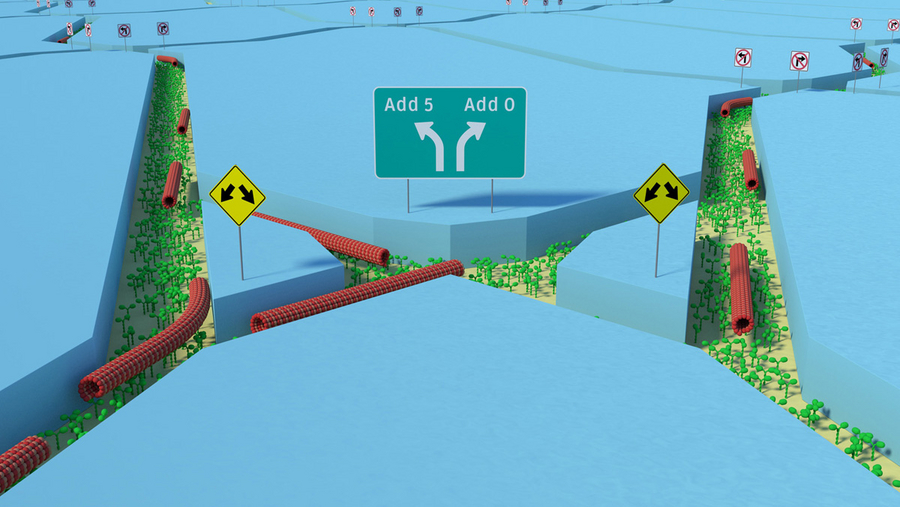
Illustration of protein filaments (red) propelled by molecular motors (green) arriving at a junction where they perform a calculation operation (adding 5 or adding 0).
A study published this week in Proceedings of the National Academy of Sciences reports a new parallel-computing approach based on a combination of nanotechnology and biology that can solve combinatorial problems. The approach is scalable, error-tolerant, energy-efficient, and can be implemented with existing technologies. The pioneering achievement was developed by researchers from the Technische Universität Dresden and the MPI-CBG, Dresden (MPI-CBG Fellow Stefan Diez) in collaboration with international partners from Canada, England, Sweden, the US, and the Netherlands.
Read press release by the cfaed - Center for Advancing Electronics, Dresden